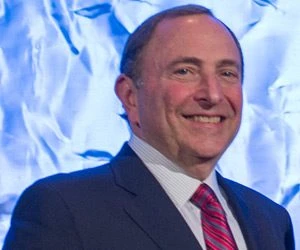NHL chief wants league to benefit from betting

The NHL ice hockey league could seek partnerships with gambling companies in order to take advantage of the expanding regulated sport betting market in the US.
Earlier this week, basketball’s NBA became the first professional sports league in North America to strike up an official relationship with a gambling company. The NBA signed MGM Resorts International as its first official gaming partner in a deal that also covers the WNBA women’s league.
The deal has seemingly had an impact on NHL commissioner Gary Bettman, whose league was initially opposed to extending sports betting in ice hockey over fear of integrity issues. The NHL, along with the NBA, National Football League (NFL) and Major League Baseball (MLB), had sought to block the expansion.
However, following the Supreme Court ruling on PASPA in May, this has opened up the market, with many states now looking to legalise sports betting.
Speaking on PodcastOne Sports Now, Bettman that the league intends to speak with any entity seeking to conduct gambling business using the intellectual property, data or game video from the league.
“We've historically been opposed to extending sports betting on our game, and emotionally I don’t think that's changed,” Bettman said. “It is a fact of life that in light of the Supreme Court's ruling… it'll be up to states to decide whether or not they're going to enact sports betting.”
Bettman added that he believes his league should benefit from bets being made on its games.
He added: “From our standpoint, we believe that, whether it’s our intellectual property, our data, whether its video of our game, we have important assets and if somebody is going to avail themselves or want to avail themselves of those assets in order to conduct their business, then we're going to need to have a negotiation.”
Today (Friday), betting operator William Hill, which is already active in a number of states, said it has agreements in place with 11 casinos in Mississippi and a casino in West Virginia, with talks ongoing with operators spread across a further 14 US states.
